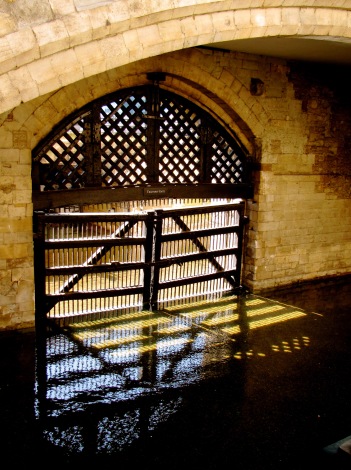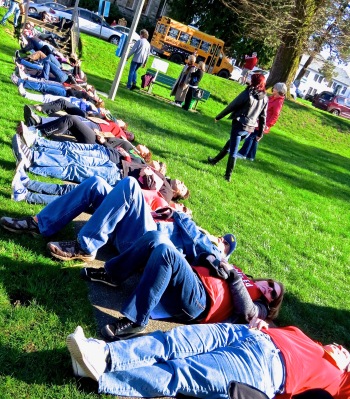Are you familiar with The Little Match Girl by Hans Christian Anderson? It’s a tragic tale about a child trapped in a world of poverty and abuse, hunger and homelessness…
On New Year’s Eve, someone steals her ill-fitting shoes, so the little girl wanders barefoot through the snow, trying to sell matches to uncaring people hurrying home to warm houses and holiday feasts. No one has a farthing or even a second glance for the unfortunate waif. If she goes home having sold no matches, her father will beat her. To keep the cold at bay, she huddles against a wall and strikes her matches, one at a time. In each tiny flame she sees visions: a warm stove, an elegant feast, a Christmas tree lit by candles…
Then her dead grandmother, the only person who ever treated her with kindness, appears to the shivering child, and carries her soul off to Heaven. The next morning, the strangers who walked past her the night before discover the little match girl’s icy corpse, clutching the burnt-out matches in her frozen fingers. Too late they feel a twinge of pity. The end.
As a child, I hated that story. I was appalled that grownups could look away from a child’s suffering, without lifting a finger to help. Why would anyone invent such a depressing story, and who would want to hear it?
As an adult, I still hate that story, and even more now, because I realize that when Anderson wrote The Little Match Girl in 1845, except for the bit about the grandmother, he was fictionalizing a deplorable reality he himself was witnessing. He wrote during the Industrial Revolution, when the poor were miserable and overcrowded. Pollution from the unregulated burning of coal poisoned the air, and factories were dumping metals, chemicals, raw sewage, and other toxins into the lakes and rivers that people depended upon for drinking water.
Wages were so low that the working class toiled 12 to 16 hours a day, yet still couldn’t earn a living wage. On the brink of starvation, they sent their children to work in factories and mines. Many were separated from their families, left to the ‘mercy’ of strangers, working ungodly hours for only a place to sleep and the food they ate.
In 1832 it was reported, “…workers are abandoned from the moment an accident occurs; their wages are stopped, no medical attendance is provided, and whatever the extent of the injury, no compensation is afforded.”
The wealthy were given free reign to exploit the poor. When the Industrial Revolution sparked disputes over inhumane working conditions, the government introduced measures to prevent labor from organizing. The rich got richer, the poor remained poor, and children, who were forced to work all day or starve, couldn’t get an education to help them rise from poverty.
In the USA, industrialization occurred mostly in the North, with an influx of immigrants serving as factory fodder to keep up with attrition and demand. The South had its own foul history of systemic oppression, with its agrarian economy dependent upon human slavery.
Over time, Americans have fought and died for the cause of social justice. They organized labor unions, which brought an end to child labor, shortened the work week, and ushered in workman’s compensation for on-the-job-injuries. They are still trying to negotiate a living wage. Public education, Social Security, Medicare, Affordable Healthcare have all helped to even the playing field and a provide a social safety net. Civil rights, women’s suffrage, Affirmative Action, environmental protection have, too.
We still had a long way to go to overcome class, gender, religious, and racial discrimination, such as the legacy of Jim Crow that still exists. Yet we saw the middle class grow, the standard of living rise, and each generation doing better than the preceding one, until the 1970s. What in Hell happened? Ronald Reagan, and his trickle down economics, for starters. It has been a downhill slide since then, snowballing since the Trump administration took power.
Today there is a little match girl on every street corner. Our democratic republic has degenerated into an oligarchy, bought and run by big business, with puppet strings being yanked all the way from Russia. International treaties have been broken, environmental protections scrapped to increase company profit, families torn apart by inhumane ICE policies, cruelly punishing the innocent children of undocumented immigrants. Affordable Healthcare, Social Security and Medicare are in the administration’s crosshairs. The three richest men in America own more than half of this country’s wealth. Our society has regressed two hundred years to become a near perfect match for the one that inspired Hans Christian Anderson to write The Little Match Girl. A match made in Hell.
I will always hate that story. But we need to keep telling it, until we can pound out a new ending. We need to keep telling it, until we never need to tell it again.


































